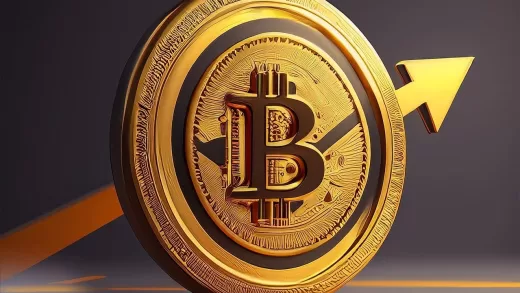Hey there! If you’re into cryptocurrencies like Bitcoin or Ethereum, you probably know how important it is to keep them safe. With the value of these digital currencies going up, you want to make sure they’re secure from hackers and thieves. That’s where hardware wallets and paper wallets come in. They’re like your crypto vaults, but they work a bit differently. Let’s explore the world of hardware wallets and paper wallets, and figure out which one might be best for you.
What Are Cryptocurrency Wallets?
Before we dive into the hardware wallet vs. paper wallet debate, let’s get the basics down. Cryptocurrency wallets are like digital piggy banks. They help you store, receive, and manage your cryptocurrencies, just like your regular wallet holds your cash and cards.
There are two main types of wallets: hot wallets (online) and cold wallets (offline). Hot wallets are connected to the internet, which can make them vulnerable to online threats. Cold wallets, on the other hand, keep your crypto safe and sound offline. Hardware wallets and paper wallets fall into this cold wallet category.
Hardware Wallets: The Fort Knox of Crypto
What’s a Hardware Wallet?
A hardware wallet is a physical device that’s designed to keep your cryptocurrency private keys super safe. It looks like a small USB stick, and it comes with a little screen and buttons. These gadgets generate and store your private keys in a super secure environment, so it’s really hard for bad guys to get to them.
Why People Love Hardware Wallets:
- Top-Notch Security: Hardware wallets are known for being one of the safest ways to store cryptocurrencies. Your private keys never leave the device, so hackers can’t snatch them online.
- Easy Peasy: They’re quite user-friendly, even if you’re not a tech whiz.
- Works with Many Coins: Most hardware wallets support lots of different cryptocurrencies, which is handy if you have a diverse crypto collection.
- Backup Plan: Hardware wallets often let you create a backup in case you lose or break the device.
Popular Hardware Wallets:
Read: 25+ Best Hardware Wallets
Paper Wallets: Old-School Safety
What’s a Paper Wallet?
A paper wallet is a physical piece of paper with your cryptocurrency’s public address (for receiving funds) and its private key (for spending or moving your money). Everything is generated offline, so it’s like putting your crypto in a super safe offline vault.
Why People Use Paper Wallets:
- Ultimate Offline Safety: Since they’re entirely offline, paper wallets are immune to online hacking attempts.
- No Fancy Gadgets Needed: You don’t need any special hardware, making paper wallets super accessible.
- Great for Long-Term Savings: If you’re planning to hold onto your crypto for a long time, paper wallets are a good choice.
Keep in Mind:
- Handle with Care: Paper can tear, get wet, or fade over time, so be careful with your paper wallet.
- Recovery Can Be Tricky: If you lose your paper wallet or it gets damaged, getting your funds back can be tough, especially if you’re new to crypto.
Read: How to create a Paper Wallet
Hardware Wallet vs Paper Wallet – Compared
| Aspect | Hardware Wallet | Paper Wallet |
|---|---|---|
| Physical Form | Small electronic device | Piece of paper or other material |
| Security | Highly secure with PIN, 2FA, and secure elements | Secure if created and stored properly, vulnerable to physical threats |
| Convenience | Easier for transactions and management | Less convenient for transactions, manual input of keys required |
| Backup and Recovery | Recovery phrases or seed words for backup | Manual creation of multiple copies for backup |
| Durability | Durable and can be used for many years | Vulnerable to wear, tear, and environmental damage |
| User-Friendliness | User-friendly interfaces for managing crypto | Requires technical knowledge for setup and use |
| Protection from Loss | Can be lost or stolen but recoverable with a backup | Can be lost, damaged, or misplaced with no recovery option |
| Cost | Generally more expensive upfront | Low cost, only requires paper and printer |
Pros and Cons – Hardware Wallet vs Paper Wallet
| Aspect | Hardware Wallets | Paper Wallets |
|---|---|---|
| Pros | – High security due to isolated environment. – Suitable for everyday use. – Support for various cryptocurrencies. – Provides recovery options. – Regular updates for improved functionality. |
– Maximum offline security. – No specialized hardware is required. – No cost for creating. – Offers a higher level of anonymity. – Simple to create and use. – Ideal for long-term storage. |
| Cons | – Cost of purchasing the hardware wallet (typically $50-$200). – Can be damaged, lost, or stolen. – Requires initial setup. – Tied to your identity due to purchase. – Suitable for both frequent and occasional transactions. |
– Vulnerable to physical damage, water, fire, or loss. – Often no recovery options in case of loss or damage. – Must handle with care. – Not suitable for frequent transactions. – Risk in DIY creation process. |
Summary

Choosing between hardware wallets and paper wallets boils down to what you need and what you’re comfortable with. Here are some things to consider:
Security: Both are super secure, but hardware wallets might have a slight edge because of their fancy hardware and PIN protection.
Ease of Use: Hardware wallets are usually easier to use, especially for everyday stuff.
Short or Long Term: If you plan to hold your crypto for a long time, a paper wallet could be enough. But if you’re trading or moving it around a lot, a hardware wallet is a better fit.
Backup and Recovery: Hardware wallets often have simpler ways to back up and recover your stuff.
In the end, the choice between hardware wallets and paper wallets depends on your needs and preferences. Whether you go high-tech with a hardware wallet or old-school with a paper one, always remember to keep backups safe, and never share your private keys. That way, you can enjoy your crypto journey with confidence.
Remember, keeping your crypto safe is like looking after your savings, and it’s always better to be safe than sorry in the digital world!











![[Sponsored] STG Energy Launches Breakthrough Cloud Mining Product to Democratize Crypto Mining 11 STG mining](https://coinfunda.com/wp-content/uploads/2025/02/STG-mining-520x293.webp)
![[Sponsored] Centralhash cloud mining platform easily obtains 100,000 US dollars of 12 central hash](https://coinfunda.com/wp-content/uploads/2025/02/central-hash-512x293.webp)